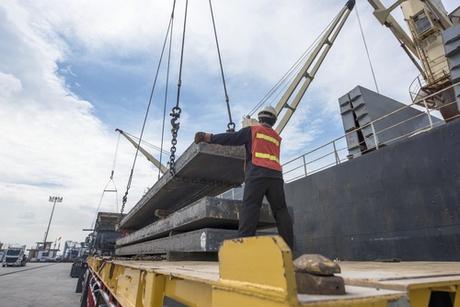Can U.S. Virgin Islands Harbor Workers Seek Compensation for Injuries?
 The job duties a worker performs on a daily basis can vary depending on the occupation. For example, an employee may have a “desk job” and work on the computer all day, or he or she may be a doctor or nurse in a hospital. A longshoreman, also referred to as a harbor worker, is a common occupation in areas or locations that are near or on the water. In the U.S. Virgin Islands, many residents are employed by shipping or docking companies. Typical jobs include cargo loaders, ship mechanics, shipbuilders, and people who work on the docks or piers. These harbor workers may be at risk for unique injuries, and they should be sure to understand if they are entitled to compensation and how to file a claim.
The job duties a worker performs on a daily basis can vary depending on the occupation. For example, an employee may have a “desk job” and work on the computer all day, or he or she may be a doctor or nurse in a hospital. A longshoreman, also referred to as a harbor worker, is a common occupation in areas or locations that are near or on the water. In the U.S. Virgin Islands, many residents are employed by shipping or docking companies. Typical jobs include cargo loaders, ship mechanics, shipbuilders, and people who work on the docks or piers. These harbor workers may be at risk for unique injuries, and they should be sure to understand if they are entitled to compensation and how to file a claim.
Common Types of Harbor Accidents and Injuries
Due to the nature of their jobs and where they are located, workers in the maritime industry face dangers that office workers would not. For instance, these individuals may be loading and unloading cargo or repairing ships in port. Longshoremen often use large and hazardous machines to lift heavy cargo while working on wet and slippery surfaces.
Here are a few of the most common types of accidents that can take place in a workplace that is on or near the water, and the resulting injuries that a harbor worker may suffer:
-
Slip and falls: Broken bones, spinal cord damage
-
Drowning/near-drowning accidents: Brain damage or wrongful death
-
Scaffolding mishaps: Lacerations or bruising in the event of a collapse
-
Fires and explosions: First-, second-, or third-degree burns
-
Electrocutions: Permanent nerve damage
-
Equipment/machinery malfunctions: Severed limbs/amputation
-
Crane and forklift accidents: Possible paralysis
Seeking Compensation
Employees who work on or near the water (not including members of a vessel’s crew) are covered by the Longshore and Harbor Workers Compensation Act (LHWCA). This federal law was put in place to address various injuries that can occur while performing maritime work taking place on or near “navigable water.” This includes workers who are performing a job that is on a boat, ship, water, or involves marine transport in some manner. In addition, a longshoreman may be covered if he or she were working on the water, next to the water, or in a shipyard, dock, shipping terminal, or a loading/unloading location close to the shore.
In some cases, the LHWCA claim may not be enough to cover the damages incurred by a longshoreman and his or her family. Therefore, an injured harbor worker may be able to pursue third-party personal injury claims. These can be based on negligence by a ship’s crew member or owner if he or she did not provide a reasonable duty of care. Examples of this negligent behavior may include not adhering to navigation laws or not complying with safety standards.
Contact a U.S. Virgin Islands Personal Injury Lawyer
There are inherent risks in many types of jobs, and these can lead to serious injuries. If you or a loved one is a longshoreman or a harbor worker in the U.S. Virgin Islands, you may be susceptible to specific hazards on land or at sea. At Colianni & Colianni, LLC, we understand how a devastating injury can not only hurt you physically, but also financially. That is why you should be sure to understand your rights to recover compensation for your pain and suffering. Our dedicated St. Thomas, St. Croix and St. John longshoreman and harbor worker injury attorneys will comb through the details of your case to determine liability. We have more than 50 years of experience representing clients in all types of personal injury cases. Call us today at 340-719-1766 to schedule your free consultation.
Sources:
https://www.dol.gov/owcp/dlhwc/FAQ/lsfaqs.htm
https://www.maritimeinjuryguide.org/maritime-accidents-injuries/types-maritime-injuries/shore-based/

 340-719-1766 340-200-0025
340-719-1766 340-200-0025





